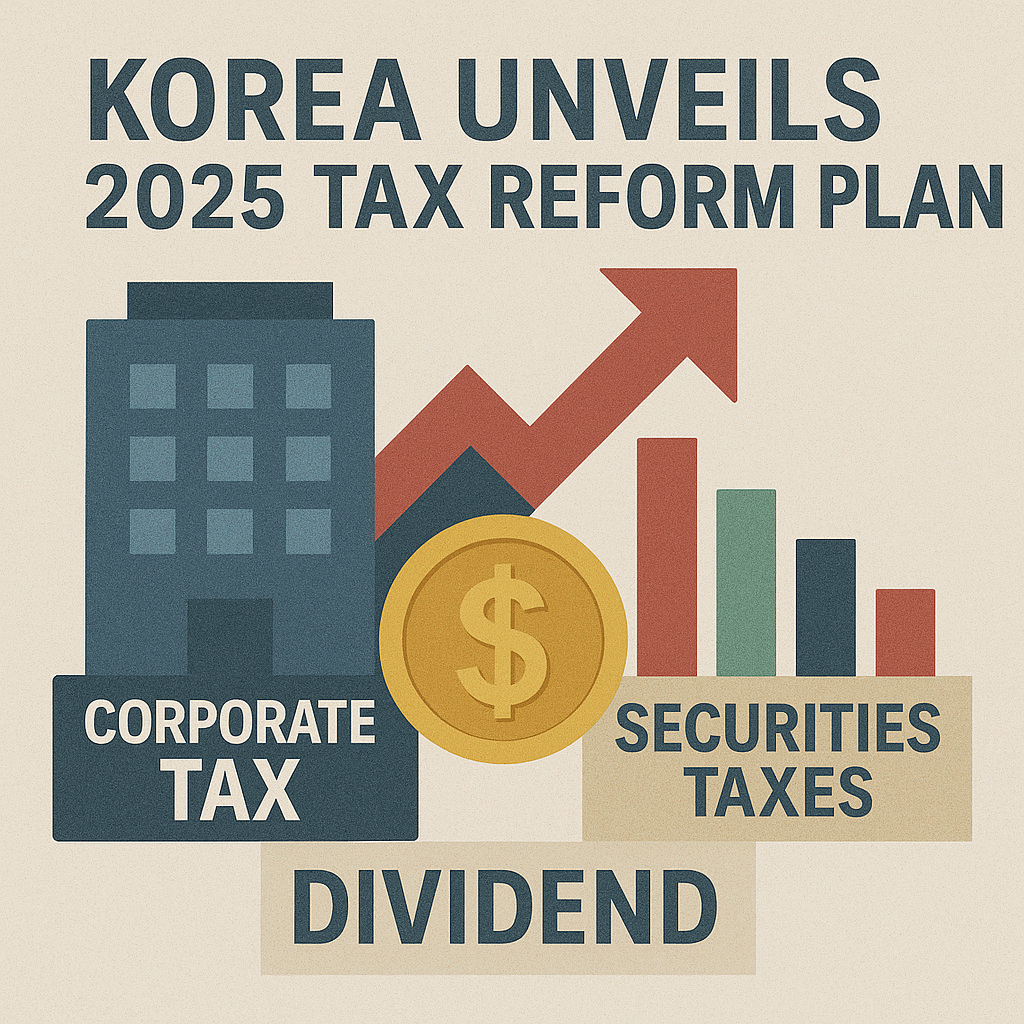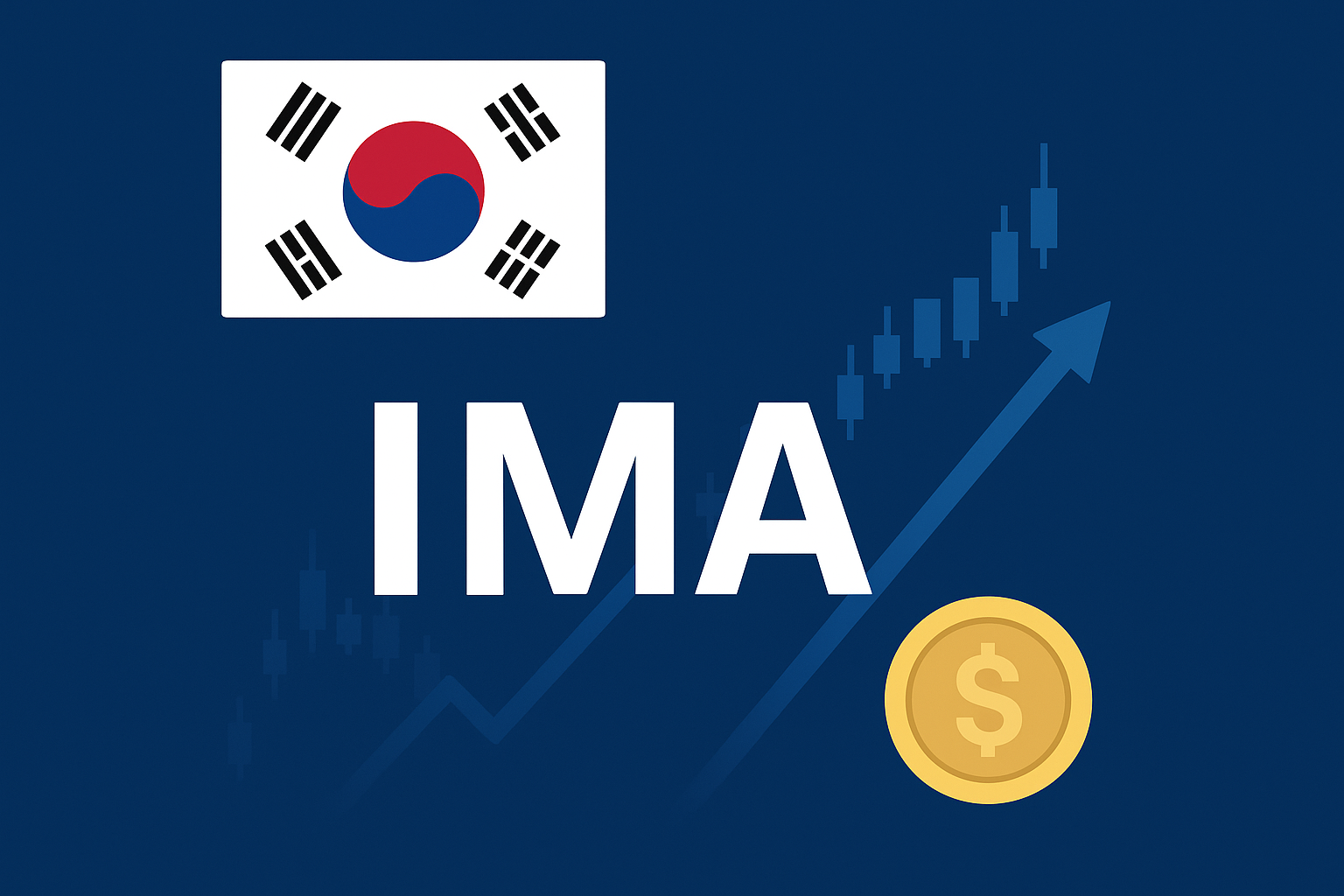
South Korea has finalized its 2025 tax reform plan, reversing previous tax cuts and raising levies to expand the fiscal base. The measures include higher corporate tax rates, increased securities transaction taxes, tighter capital gains thresholds for major shareholders, and a new framework for dividend taxation.
Corporate Tax Restored
Corporate income tax rates will rise by 1 percentage point across all brackets, returning to pre-2022 levels. Rates will be set at 10% for taxable income up to 200 million won, 20% for 200 million–20 billion won, 22% for 20–300 billion won, and 25% for income exceeding 300 billion won.
Securities Transaction Tax
The securities transaction tax will also be raised. The KOSPI market rate will move from 0% to 0.05%, while KOSDAQ will rise from 0.15% to 0.20%. The additional 0.15% farmland tax remains unchanged.
Capital Gains Tax Threshold
The capital gains tax threshold for large shareholders will be tightened, lowering the ownership requirement from 5 billion won per stock to 1 billion won. Shareholding ratio thresholds remain at 1% for KOSPI and 2% for KOSDAQ.
Education Tax on Financial Firms
Financial and insurance companies with annual income exceeding 1 trillion won will face an education tax rate doubled from 0.5% to 1.0%, targeting windfall profits in the sector.
Dividend Tax Reform
A new separate taxation scheme for dividend income will be introduced, with rates up to 35% (38.5% including local income tax). The measure is designed to encourage higher dividend payouts and strengthen shareholder returns.
The Ministry of Economy and Finance estimates the reforms will generate about 35 trillion won ($26 billion) in additional revenue over the next five years, providing fiscal space for economic and social policy priorities.


